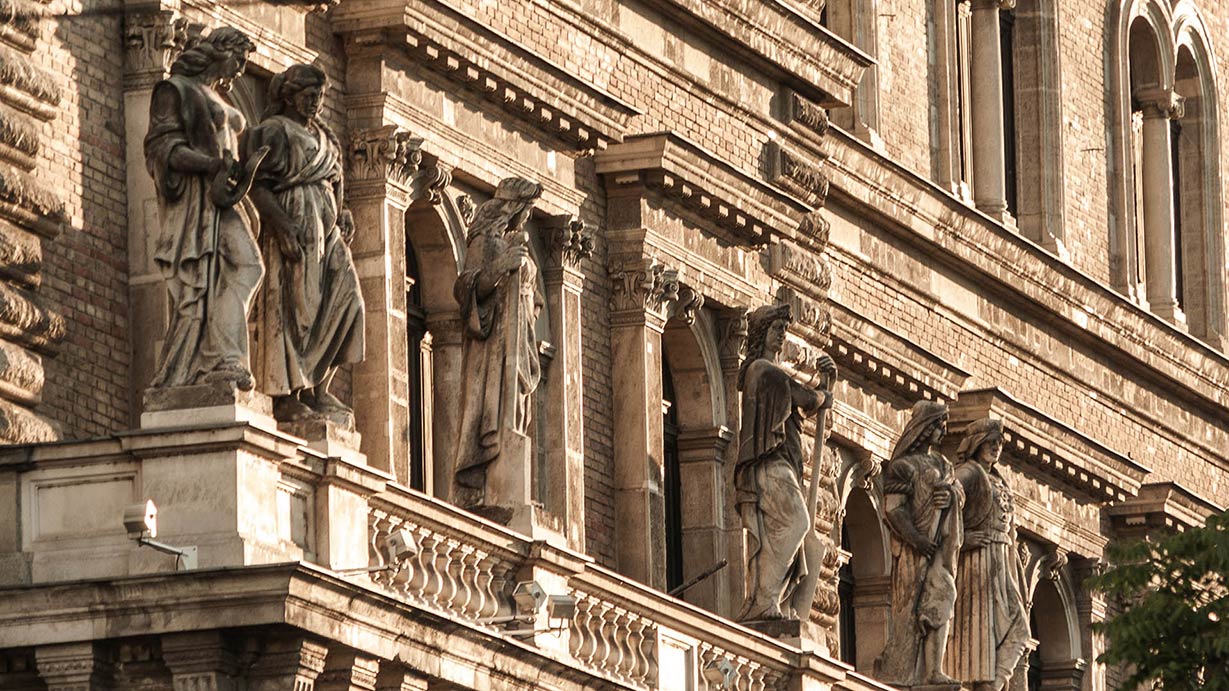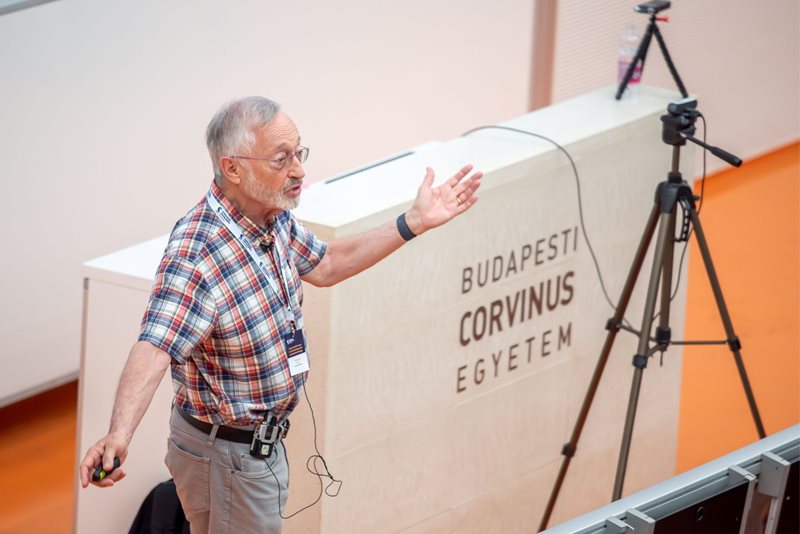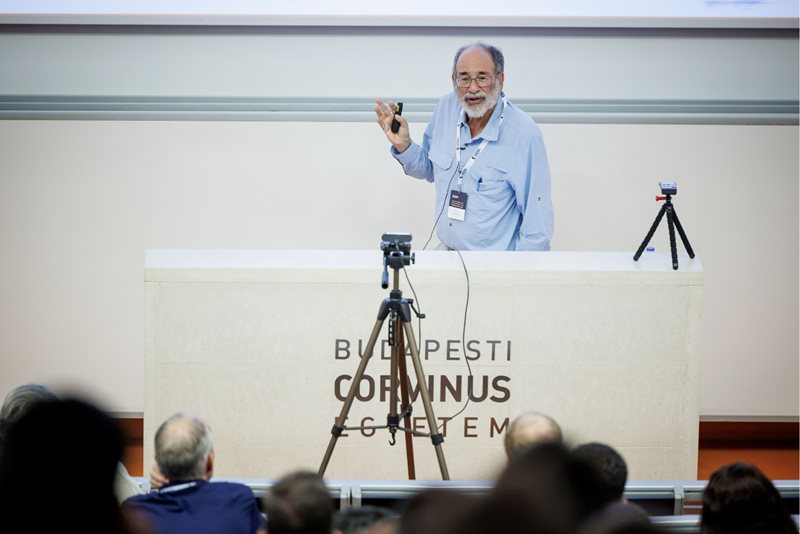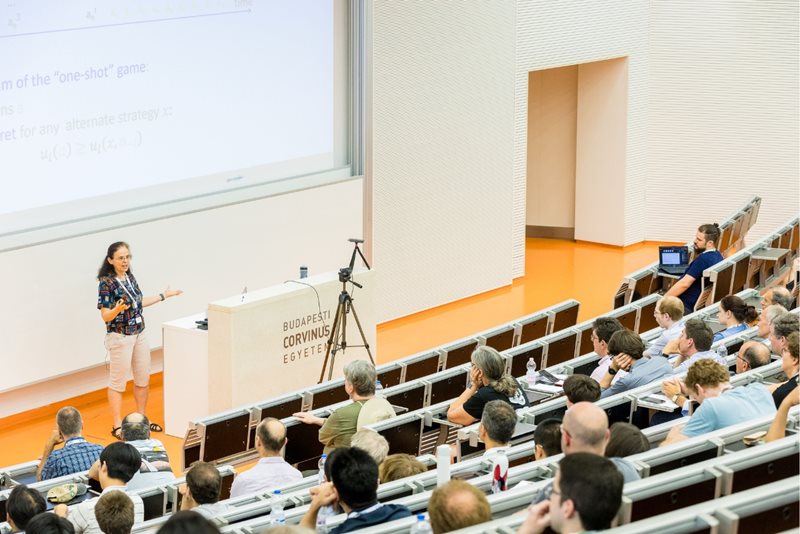Kidney exchange and frequency action require proper planning too

An international conference on mechanism design was held at Corvinus University of Budapest in early July, attended by approximately 300 researchers from around the world. The broad objective of the discipline is to effectively regulate economic and social processes. It comprises game theory, behavioural economics, competition regulation and market design, including auctions and matching markets, as well as social choice theory and voting theory. At the international conference on mechanism design held at Corvinus University, Paul Milgrom spoke about the auctioning of spectrum and water rights, Alvin Roth delivered a lecture on the ethics of market design, but kidney exchange programmes and online parcel delivery were also among the topics discussed, as some of the more frequently applied areas of economics. Roth and Milgrom’s work on market design is also known as engineering economics as they propose mechanisms for practical issues as well as for allocation and auction applications that work well in practice.

Milgrom’s team generated USD 10 billion worth government revenue from radio frequencies
Paul Milgrom, a key speaker at the conference from Stanford University received a shared Nobel Prize in economics in 2020 for developing and implementing the auction theory. In his lecture, he presented in detail two applications on rights transfers in complex markets. The first one concerned the market of water rights. Here, the difficulty of transferring rights is due, on the one hand, to the fact that changes in water use by an actor strongly affect the opportunities of other actors given the limited water resources, and, on the other hand, the fact that some of the water used can be recycled back into the system: for example, water used for irrigation can supply another area through groundwater.
As for radio spectrums, he explained the background for the double auction organised by the US Federal Communications Commission (FCC) in 2017, which was designed by Milgrom’s team. This comprised three main steps. First, the authority conducted a descending-price auction to assess the willingness of the owners, mainly radio and television broadcasters, to sell at the time. Second, the freed-up frequencies were optimally repackaged by retuning the remaining frequencies to create valuable wide frequency, high-coverage bands. And third, mobile operators bought them in a combinatorial auction. Computer scientists were also involved in the process. The communications authority generated significant government revenue: the spectrums bought for a total of USD 10 billion had been repackaged and sold on for USD 20 billion. As an added benefit, they also managed to ensure the acquisition of frequencies by economically more efficient mobile operators, which could only be achieved through a centrally organised auction.

Roth: Why do national regulations on kidney exchange programmes differ so much?
Alvin Roth, from Stanford University, also gave a plenary lecture. In 2012, he was awarded a shared Nobel Prize in Economics for his theoretical research on the so called stable matching mechanisms and the practical application of market design. In the initial research conducted on the subject, they provided a basic model and algorithm for the university admissions problem, which is used in Hungary as well. In his lecture, Roth spoke about the ethics of market design. He has long been interested in why human societies find certain transactions unacceptable, such as slavery, interest payment, drug use, gay marriage, abortion, IVF or surrogacy.
In his presentation, Roth discussed two topics in more detail. One of them concerned the field of economics experiments. In a recent experiment, they intervened in the recruitment market for junior lecturers of economics by asking renowned economists to retweet the papers of PhD students from a randomly selected group of registered individuals. This simple intervention significantly improved the success rates of the students involved in the experiment, increasing the number of final offers received by almost one on average. Some analysts who consider the experiment to be unethical believe that it was unfair to the students outside of this select group. On the other hand, it is argued that such market interventions are not necessarily harmful, and could even have a positive effect for all by improving solution quality. In addition, the lessons learned from such practical experiments can greatly improve the functioning of the specific application and other similar markets.
In the second part of the presentation, Roth spoke about the ethical issues of medical applications, particularly kidney transplantation. Financial compensation for living donors is prohibited in all countries, except for Iran, where the state regulates payments for living donors and the allocation of their kidneys. However, kidney exchange programmes operate in almost all Western countries, with patients able to exchange the kidneys of immunologically incompatible donors (mainly spouses and family members) for compatible ones. Regulations vary greatly across countries: in Germany, kidney exchanges are essentially still prohibited, but other major EU countries, including Hungary, allow them, and there are some coordinated international programmes as well.

Tardos: Participants may learn from Facebook auctions
In her presentation, Éva Tardos, Professor at Cornell University explored the markets’ learning processes and solutions in relation to the queuing models of online parcel delivery, and Google and Meta’s online algorithmic auctions, which use paid personalised advertising to reach consumers. Initially it was assumed that if there is a strategy for a player that is superior to all other strategies in all cases, that player will recognise and follow it. However, in the case of multiple players, the solution that is optimal for an individual is not necessarily optimal for the entire community – determining the value of optimal solutions that are achievable in theory and maximise individual benefit in practice is a fundamental issue in algorithmic game theory, which is the price of anarchy.
Roger Myerson, from the University of Chicago, who received a shared Nobel Prize in Economics for his work on mechanism design in 2007, closed the plenary session online. In his talk, he discussed the relationship between equilibrium solutions for a basic communication game, providing a fine example of how operations research methodology can be used to analyse game theory and mechanism design applications.
The conference, which took place on 8-12 July, was organised by members of the HUN-REN KRTK KTI Mechanism Design Research Group, assisted by colleagues from the Corvinus Institute of Operations and Decision Sciences, and was funded by the Momentum Programme of the Hungarian Academy of Sciences. Corvinus University provided the venue and arranged the invitation of plenary speakers. Sponsorship was provided by the Hungarian Operations Research Society both professionally and financially. The conference on mechanism design is organised every two years by the Society for the Promotion of Mechanism and Institution Design. This year, following two online sessions, it was finally held as a physical event.